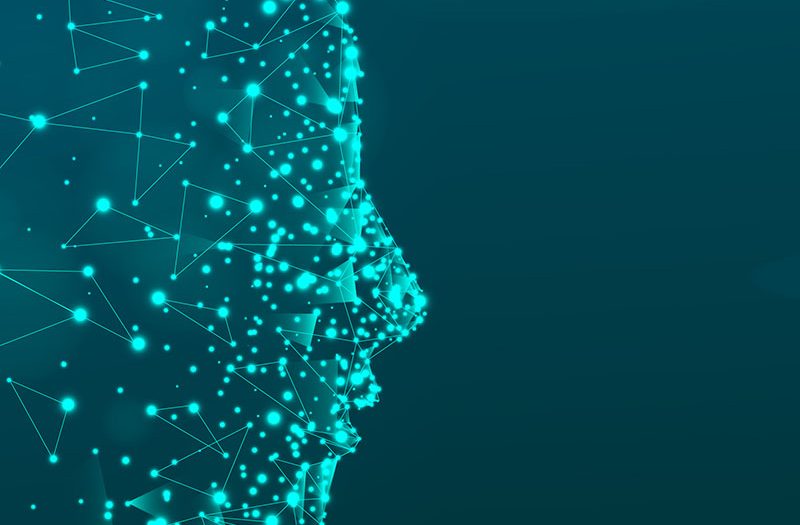This research is about the first major legal fiqh maxim which is الأمور بمقاصدها i.e., actions are judged by their intentions and its applications in solving modern-day technological fiqh issues. The article will be divided into four main sections: 1) Introduction and meaning. 2) Evidences from Qur’an and sunnah. 3) The use of technology in the light of this maxim. 4) Conclusion.
Introduction and meaning
Actions are judged by intentions is the first major fiqh maxim which is applicable to all sharia dimensions. It means that actions are judged according to the intention of the doer. An example that may highlight this is when a person gives a charity: is he doing this act for the sake of Allah or in order to be labeled “the benefactor” or “the generous”? So, the action is the same but the intention can cause reward or punishment.
Intention is a pillar that should be maintained in all actions and transactions. For a deed to be accepted from a Muslim, two prerequisites must be fulfilled: Firstly, Ikhlaas i.e., sincerity and good intention. Secondly, Ittibaa’ i.e., following the sunnah of prophet Muhammed (PBUH) or what might be termed ‘following sharia’ in this context.
Evidences from Qur’an
The scholars of fiqh formed this maxim from the Qurán and th sunnah. Here are some Quránic evidences:
Allah said, the meaning of which is: “Whoso desireth the reward of the world, We bestow on him thereof; and whoso desireth the reward of the Hereafter, We bestow on him thereof. We shall reward the thankful” Qurán (3:145)
The Exalted also said: ” Whoso migrateth for the cause of Allah will find much refuge and abundance in the earth, and whoso forsaketh his home, a fugitive unto Allah and His messenger, and death overtaketh him, his reward is then incumbent on Allah ” Qurán (4:100)
Allah also said: “And whoso desireth the Hereafter and striveth for it with the effort necessary, being a believer; for such, their effort findeth favour (with their Lord ” Qur’an (17:19)
“Knoweth he not that, when the contents of the graves are poured forth (9) And the secrets of the breasts are made known, (10) On that day will their Lord be perfectly informed concerning them” Qurán (100:9-11)
Evidences from the Sunnah:
The prophet (PBUH) said: ” (The value of) an action depends on the intention behind it. A man will be rewarded only for what he intended. The emigration of one who emigrates for the sake of Allah and His Messenger is for the sake of Allah and His Messenger ; and the emigration of one who emigrates for gaining a worldly advantage or for marrying a woman is for what he has emigrated [1].”
The prophet (PBUH) also said: “You will be rewarded for whatever you spend for Allah’s sake even if it were a morsel which you put in your wife’s mouth.[2]“
The prophet (PBUH) also said: “Verily Allah does not look to your faces and your wealth but He looks to your heart and to your deeds.[3]”
The abovementioned evidences will be referred to on tackling the technological issues during in the next section.
The use of technology in the light of this maxim:
Technology is dominating the world in recent times; it became an essential part of people’s lives whether on the personal or the professional level. Consequently, most people are inevitably involved in modern technology in a way or another. The question that arises in the context of this research is: How can intention affect our approach towards technology? To insightfully handle this issue I am going to focus on the following technological aspects:
- Service providing:
There are three major service providing types to be addressed here: Application Service Providing (ASP), Network Service Providing (NSP) and Internet Service Providing (ISP). It is generally true that these service providing aspects can be considered as the gates to digital information; which is crucial for research, academia and even the day-to-day search for data.
Examples:
- Application service providers: Microsoft and its applications, such as: Microsoft office and Microsoft Windows.
- Network / Internet service providers: Google, on a large scale; and the many local companies that provide ADSL and Wi-Fi access in every city.
Good intention:
In addition to the worldly benefit, service providers can earn endless reward when this is done for the sake of Allah[4]. A subsidiary maxim to the first major one we talk about is: a good deed is rewarded if it is done for the sake of Allah. More specifically, intentions can be: Microsoft Word is used by scholars to publish their works and books, providing internet access to students and scholars to help them with research, services are used by online Islamic educational institutions that teach millions around the world. A man is rewarded for what he intended as the prophet (PBUH) said.
Bad intention:
On the other hand, service providers might get endless bad deeds if the intention was corrupt. For example: to provide internet access in an area where the inhabitants are mostly criminals, providing service to a company well-known for its support to the Israeli government, hosting a website of a major alcohol company.
- GPS / SAT. NAV.
Using the Global Positioning System or the Satellite Navigation can be a double –edged sword:
Good intention:
Providing this service to help people find places easier and save their times, providing it to a Muslim police in order to find criminals easily.
Bad intention:
Using the GPS to locate people’s places and using this data immorally, providing it to a mafia, providing it to a police known for transgression.
- Nanotechnology
The official website of the United States National Nanotechnology Initiative (2014) defined it as the study and applications conducted at the Nano level which is extremely small: about 1:100 nanometers.
Good intention:
Developing nanoships that travel inside the human body, discover diseases and provide medical treatment.
Bad intention:
Developing nanocameras that spy on people, developing nanoweapons which harm innocent humans.
- Social Networking
Social networking is fast-growing. It is “the top internet activity “as the Business Insider reported. Amongst the very popular networking websites are: Facebook, Twitter and Google Plus. Can intention have an impact on the user?
Good intention:
Many Muslim organisations and individuals are exploiting social networking websites to serve da’wah and Islamic education, such as: IOU, Productive Muslim, iEra, Moslehoon, etc. With a good intention to educate people and promote da’wah, a person can have as much reward as those benefit from the content.
Bad intention:
Likewise, bad intentions are manifested in networks which promote non Islamic content such as pornography and so on. Another example is using the social network as a trap for the less-educated youth to water-down their Islamic beliefs.
Conclusion
To sum up, each and every act in Islam needs an intention so that it can be rewarded. With technology today, Muslims should be aware of the sharia maxims and apply them. I believe it is essential to always have this equation in mind: a habit + good niyyah = worship.
Bibliography
Adler, E. (2014) Social Media Engagement [online]. Available from <http://www.businessinsider.com/social-media-engagement-statistics-2013-12 [Accessed: 5th July 2014]
Al Azzawy, F. (2009) مدخل إلى علم المقاصد, [online]. Available from <http://www.alukah.net/sharia/0/6265/> [Accessed: 4th July 2014]
Al Rajhi, A. (n.d.) قاعدة الأمور بمقاصدها, [online]. Available from: <http://www.saaid.net/Doat/alrajhi/19.htm> [Accessed: 4th July 2014]
As-Sibeil, A. (n.d.) القاعدة الكبرى الأولى: الأمور بمقاصدها, [online]. Available from: <http://uqu.edu.sa/page/ar/10486> [Accessed: 4th July 2014]
Pickthal (n.d.) Qurán Translation [online]. Available from <http://www.quranexplorer.com/quran/> [Accessed: 4th July 2014]
Sunnah (2014) Sahih Al Bukhari [online]. Available from < http://sunnah.com> [Accessed: 4th June 2014]
Sunnah (2014) Sahih Muslim [online]. Available from < http://sunnah.com> [Accessed: 4th June 2014]
What’s Nanotechnology? n.d., [online]. Available from < http://www.nano.gov/nanotech-101/what/definition> [accessed: 5th July 2014]
[1] Sahih Al Bukhari 54 & Sahih Muslim 1907
[2] Sahih Al Bukhari 56
[3] Sahih Muslim 2564
[4] However, they should be Muslims, maintain Ikhlaas and Ittbaa’ as mentioned in the introduction and meaning section.





I see you don’t monetize elteacup.net, don’t waste your traffic, you can earn extra bucks every month with new monetization method.
This is the best adsense alternative for any type of website (they approve all websites),
for more details simply search in gooogle:
murgrabia’s tools